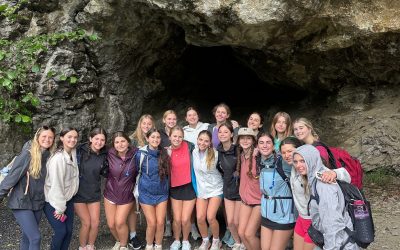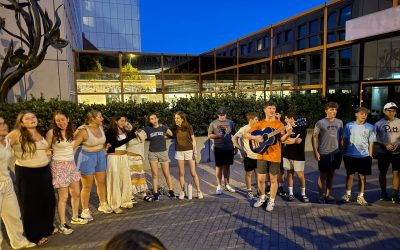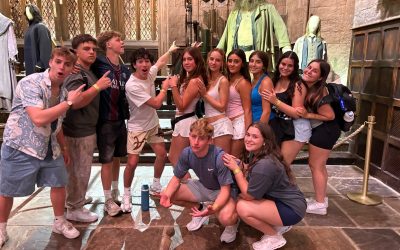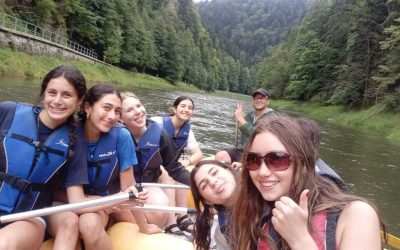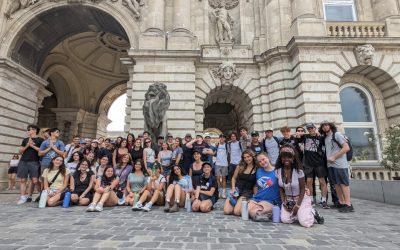We are re-sharing this blog post written by Rabbi Erin Mason, Director of URJ Greene Family Camp, who recently traveled on FJC’s (Federation for Jewish Camp) Camp Professionals Israel Mission.

In mid-February, I participated in a mission with the Foundation for Jewish Camp along with 20 other camp directors from different camping systems and movements. This trip was unlike any other time I have visited Israel.
I visited Israel for the first time during the summer of 1993 with Garin Greene. I was 16 years old, and it was the next step in my GFC journey. I remember hearing about people who got off the plane and kissed the ground upon their first-time visiting Israel. Sure enough, we did the same. It was an amazing, overwhelming feeling arriving in the Holy Land that very first time.
I have returned to Israel countless times since then. I spent a semester in college at the University of Haifa; led a Birthright Israel trip with GFC college-aged staff members in the early 2000s; studied at HUC-JIR in Jerusalem for my first year of rabbinical school; trained summer shlichim (Israeli staff members) each spring for the better part of the last dozen years at Kibbutz Shefayim. Traveling to Israel has become part of the fabric of my life as a camp director.
My latest trip to Israel, just a few weeks ago, was very different. Our quick 3½ day trip felt like 3½ weeks. I was there to bear witness to what was happening on the ground and to dive deeply into how we teach, talk about, and support Israel at camp.
In this excerpt from his poem, “Tourists,” Yehuda Amichai wrote:
Once I sat on the steps by a gate at David’s Tower,
I placed my two heavy baskets at my side. A group of tourists
was standing around their guide and I became their target marker. “You see
that man with the baskets? Just right of his head there’s an arch
from the Roman period. Just right of his head.” “But he’s moving, he’s moving!”
I said to myself: redemption will come only if their guide tells them,
“You see that arch from the Roman period? It’s not important: but next to it,
left and down a bit, there sits a man who’s bought fruit and vegetables for his family.”
Our experience with Israel each summer at GFC focuses on the relationships we build with Israelis and those who have been to Israel. In the short time we have together, this is what we have found to be most meaningful. It is not facts and figures that stick with our campers and staff, but rather it is the feeling that we get from our relationships with the people that creates and strengthens our connection. Like in Yehuda Amichai’s poem, it is the person that is important. It is through hearing the stories that the person shares about themselves, their own lived experience, and their home, that we build a connection to Eretz Yisrael, the land of Israel, and to am Yisrael , the Jewish people.
In a typical summer, we welcome between 30 and 40 new and returning shlichim to GFC. We currently have 6 returning shilchim, not including our CLASP fellow and year-round shlicha Aya Margalit and her family. Ron Bernstein (best known as Saba Ron at GFC) is returning as our rosh mishlachat (head of our Israeli delegation) and rosh international staff, as well as continuing to run our garden program. This is Ron’s 6th summer at GFC. Bar Amsalem will return for his 4th summer at GFC. Returning for their second summer are Aviv Toronza, Ilay Cohen, Yarom Hadar, and Gideon Aryeh. Each of them returns to GFC because of how important it is to them to continue to share of themselves to our community and to learn from our camp family.
We will again welcome campers from the Israel Movement for Progressive Judaism to our kibbutz program (including some returning campers from last summer!).
We bring so many Israelis to GFC because by getting to know them as humans and hearing their stories, we learn about our own history, continue to write our own stories, and learn about Israel. It is through relationships that we learn to question, to have hard conversations, and to grow.
During this trip to Israel, a focus was on hearing and becoming stewards of stories. Hearing the stories was emotional, challenging, and important. Over and over, we heard the message “Bring Them Home Now.”
We heard from a survivor of the attack on Kibbutz K’far Azza whose three-generation family lived on the kibbutz. Before October 7th, she was a volunteer in a network of people who helped Palestinians living in Gaza get to and from cancer treatment centers in Israel. She took part in an annual kite festival for peace. Her trust in people is gone, and as the length of time that loved ones and friends are held captive grows, she finds her faith in the government eroding.
Another survivor shared that every morning, she counts the days that the hostages are still gone. She feels like a Holocaust survivor who needs to speak about the October 7 attack so that no one forgets. Her belief in peace is shaken.
The site of the Nova music festival is now a memorial surrounded by a field of poppies. Each victim is represented by their name and photo on a post, forming a memorial garden for these young adults whose lives were cut short. Across the road, a grove of trees has been planted by the Jewish National Fund, each tree in memoriam of each victim. As we gathered in our group to say the mourner’s kaddish together, we heard a violin. A man, presumably a father, had taken out his violin at the memorial of one of the victims. As he played, a crowd gathered around him, moved by his playing. Eli, Eli… HaTikvah (Israel’s national anthem)…Lu Y’hi (the Hebrew rendition of the Beatles’ “Let it Be”). I was moved to tears by the power of the songs he had chosen to play and the power of the music to bring everyone present together.
We visited Camp Kimama, a summer camp program in Israel that is now providing 4-night camp programming for teens from communities that have been displaced because of the war. Much like what GFC did after Hurricane Harvey for our Houston community, Camp Kimama is operating now to give these teens some time to just be themselves, have fun, and enjoy life. Their goal is to provide a chance for kids to be kids through play, surfing, dancing, and creating a special community together.
Finally, we visited the headquarters of “Bring Them Home Now” and “Captives Square.” Captives Square is filled with art installations. One that you may have seen online is the “Empty Shabbat Table,” created soon after October 7. There is now an extension that depicts how they are imagined to be eating in captivity: a table covered in dirt, water bottles with water and silt, filthy baby bottles and highchairs. Yellow butterflies are placed on the table, echoing the Holocaust poem, The Butterfly, by Pavel Friedmann. Notes of the Holocaust are seen throughout the exhibits in the Square, heard in the way the captives are spoken about, and felt throughout Israel.
Our final meal was spent with Mohammed Darawshe, Director of Planning, Equality, and Shared Society at the Givat Haviva Center, the Jewish-Arab Center for Peace. As an Arab living in Israel, Mohammed is still hopeful for peace. He shared that though Hamas calls daily for Arab Israeli citizens to mob the streets, they are not. Though they may disagree with Israel’s response in Gaza, they will not join the cause against Israel.
I came away from this trip with clarity that our job at camp is not to teach everything about Israel and the Israeli people in 10- or 24-days. Rather, we are responsible for creating a framework for relationship-building, connections, and respectful dialogue. We see each Israeli for who they are. Through getting to know each other, we get to know Israel. As in Yehuda Amichai’s poem, it is not about the arch, it is about the person. We can start by highlighting what brings us together, what is shared: music, art, humanity. Hard conversations will happen, though not for every age group, and ideally after relationship building has begun.
We welcome our Israeli friends to camp this summer, like we do every summer, knowing that this one will be different. This summer, we must be even more intentional in our relationships as we get to know each other. At GFC, we will do what we can to seek to understand, welcoming our entire camp community as we do every summer, with open arms and open hearts.
Shabbat Shalom,
Rabbi Erin Mason
